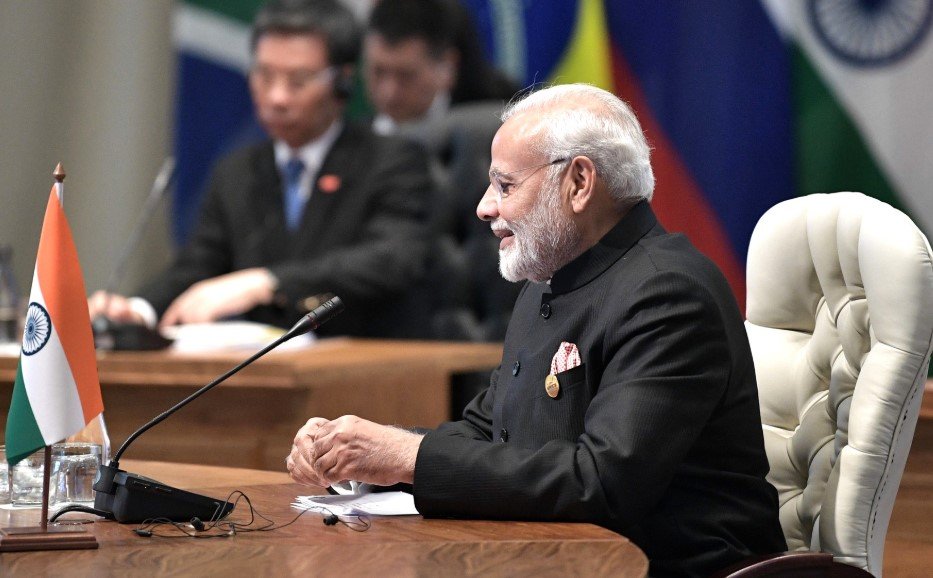India’s leader pushes for fair tech supply chains, tighter AI standards, and stronger BRICS institutions amid China’s global resource leverage
Prime Minister Narendra Modi made a firm pitch at the BRICS summit in Rio on Monday: stop any country from turning critical minerals into economic weapons. He didn’t name names, but the message was clear — China’s tight grip on global rare earth exports is becoming a threat.
Standing beside China’s Premier Li Qiang, Modi urged BRICS nations to secure supply chains for vital minerals and emerging technologies. He also called for tougher global rules on digital content and artificial intelligence, underscoring India’s push for transparency and accountability in a shifting global order.
Minerals Are Power — But Who’s Controlling the Switch?
Critical minerals may not sound glamorous, but they’re behind everything from smartphones to fighter jets. Countries like China, which controls a bulk of the world’s rare earths and processing capacity, hold serious sway.
Modi didn’t couch his words. These resources, he said, shouldn’t be used for “selfish gain” or “as a weapon.” His remarks came just months after China halted exports of key rare earths during its escalating trade tensions with the U.S.
This isn’t just about pricing. It’s about leverage. And it’s got the rest of the world scrambling for alternatives.
India, which is part of both BRICS and the U.S.-led Quad, now finds itself balancing diplomatic finesse with economic realism. Just last month, the Quad launched a new initiative to diversify critical mineral supply chains — a clear signal that China’s dominance is spooking allies and competitors alike.

Modi’s Multi-Point Agenda for a Fairer BRICS
But Modi’s speech wasn’t just about minerals. It was broad. Big-picture. The kind of speech you make when you’re thinking ten years ahead, not just two.
He made several proposals to reshape the group and position BRICS as a pillar of a multipolar world — a club that isn’t just reacting to the West, but setting its own course.
One of the biggest ideas was strengthening the BRICS New Development Bank (NDB). Modi emphasized that its future credibility would depend on sticking to a demand-driven model and long-term sustainability. In simple terms: don’t just lend money for the sake of it.
-
Call to safeguard mineral and tech supply chains from political abuse
-
Push to reform the BRICS New Development Bank into a more credible institution
-
Demand for AI regulation and transparency in digital content
-
Proposal to create a joint BRICS science and research repository
-
Support for agriculture innovation to help the Global South
India’s Strategic Messaging: Direct, But Deliberate
Even though he didn’t mention China directly, Modi’s timing was razor-sharp.
The world is still digesting Beijing’s April decision to block rare earth exports amid a trade war with the U.S. That move rattled industries from semiconductors to defense.
And it wasn’t lost on anyone at the Rio summit that Xi Jinping didn’t show up. Li Qiang stood in his place — a subtle but important detail. Diplomatically, it let Modi take a stronger stance without triggering direct confrontation.
One Indian official on background said, “We’re not trying to isolate China. We’re saying the system shouldn’t depend on one node.”
Sometimes, silence speaks volumes.
The Digital Minefield: AI, Deepfakes, and Global Standards
Modi’s speech also veered into the digital battlefield.
He warned about deepfakes, disinformation, and a growing vacuum of trust in what people see online. It’s not just a tech problem. It’s a political time bomb.
“Global standards must be created that can verify the authenticity of digital content,” Modi said. That means being able to trace where something came from, who made it, and whether it’s been tampered with.
He also announced that India will host an “AI Impact Summit” next year to drive international cooperation on responsible AI. The idea is to move faster than the chaos — before the tools outpace the rules.
This part of his speech got serious nods from Brazil and South Africa, both of whom have been dealing with domestic political damage from AI-generated content in recent months.
One Summit, Many Agendas — But A Clear Pattern
Modi’s words reflect a broader shift.
BRICS is evolving. It’s no longer just a forum for anti-West rhetoric. It’s becoming a space where emerging powers are pitching their own solutions. And India, with its growing tech capacity and geopolitical clout, wants a leadership role.
Here’s how Modi’s suggestions stack up on substance:
| Proposal | Objective | Key Impact Area |
|---|---|---|
| Block weaponisation of minerals | Prevent coercion by resource-rich states | Trade & Security |
| Strengthen BRICS New Development Bank | Improve trust and sustainability of funding projects | Development Finance |
| Regulate AI and digital content | Curb misuse, promote transparency | Tech Governance |
| Support Global South agricultural R&D | Help food-insecure countries innovate | Food Security & Science |
| Launch BRICS Science Repository | Promote shared access to research | Knowledge Sharing |
And through all this, India’s message is pretty consistent: don’t let one player hold all the cards — whether it’s about minerals or algorithms.
Looking Ahead: Summit Diplomacy or Strategic Signaling?
What’s clear is that Modi’s remarks weren’t just for the room. They were meant for the world. The timing, the tone, and the topics all point to a calculated effort to put India forward as a balancing voice — firm, but fair.
There’s still no telling how China will respond. But as the BRICS bloc explores new memberships and carves out a post-dollar path, the competition over who sets the rules is only heating up.
For now, Modi seems to be saying: if BRICS wants to be the future, it better make sure it’s not repeating the past.
